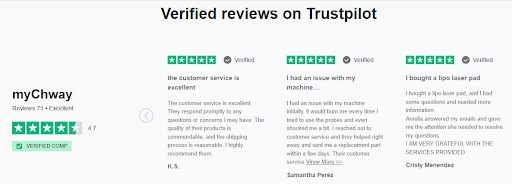Table of Contents
Unlock the power of local search with our comprehensive guide, "Local Ecommerce SEO: How to Dominate Local Search Results."

E-commerce SEO is an important niche. Google treats sales and money transactions sensitively; thus, these verticals are highly competitive. Knowledge and deployment of good ecommerce SEO tactics are essential to remain competitive online.
E-commerce SEO is tricky due to disorganized product catalogs, products out of stock, complicated site architecture, duplicate or skinny content, and other technical concerns. Aside from having a solid SEO strategy, you must be excellent in everything. Below are some of our best ecommerce SEO practices. To dominate this game, keep reading.
Why Local SEO Matters for E-commerce?
When beginning an online store from the ground up, nobody knows your brand yet. Driving visitors to your ecommerce site and raising brand awareness are two benefits of having your website rank well in search engine results.
Because of this, an open ecommerce SEO strategy is essential in developing an SEO-friendly website. On-page SEO, in particular, is central to catering to the smooth user experience and increasing traffic and sales. Below are some reasons local SEO is essential for ecommerce:
1. Increase Organic Traffic
E-commerce is a highly competitive industry. It includes major platforms like Amazon, eBay, and Craigslist, as well as niche marketplaces that often dominate local search results. Therefore, incorporating good ecommerce SEO techniques can boost your online store's rank on SERP. Increased visibility will lead to increased organic traffic to your ecommerce store.
2. Boost Conversion Rates
By appearing in search listings for terms relevant to your website, your website can capture the interest of buyers actively seeking your products. Converting them into paying consumers is simpler, which boosts conversion rates and drives sales.
3. Improve the User Experience
Keyword optimization is an important facet of SEO. Its benefits, such as quick website loading, mobile-friendliness, and simplicity, all enhance the user experience. An optimized ecommerce website makes users interact. It interests individuals to learn more about your products, which grows your conversion potential.
Win More Local Customers by Optimizing Your Google Business Profile
A Google Business Profile (GBP) is necessary to boost exposure and improve local search positions.
- First, create and maintain your GBP listing. Next, look up your business on Google or Google Maps, and if your company already has a product listing, claim it.
- Ask coworkers to provide you with their outdated mailbox login credentials so you can regain control of the listing.
- If your company does not yet have a listing, set it up and follow the instructions to verify it.
- Input information related to your business, including your name, address, phone number (NAP), and other essential details. It is always wise to follow Google's Content Guidelines.
Aesthetics play a vital role. It is best to upload team pictures and videos, the logo, and the working process. Incorporate your goods and services into your GBP to provide customers with a direct link to your online shop.
Local On-Page SEO for Ecommerce Stores: Turning Clicks into Customers
The major focus of on-page optimization is optimizing specific pages on your site to match users' search intent. This can improve your site's user experience and increase its visibility in search engines. Below are some significant features of on-page optimization:
1. Structure of URLs
For example, if you sell handmade jewelry, a URL like www.yourstore.com/handmade-jewelry is better than www.yourstore.com/products/12345. It's easier for search engines to understand and for users to find what they need.
Don't use excessively long, complex URLs with unnecessary parameters; they can lower user experience and harm search engine rankings.
2. Metadata
Your metadata includes a title tag and a meta description. Meta descriptions are short textual fragments behind title tags on search results, while title tags are the titles of your web pages. Title tags with clearly stated intentions of each page must be readable, concise, and keyword-rich. This allows consumers and search engines to find your information quickly.
Similarly, compelling meta descriptions can bring visitors to your website even if they do not directly affect rankings. A good meta description would include the target keyword and a brief description of the page.
3.Description of the Product
Write product descriptions that highlight each item's unique features and naturally incorporate relevant keywords to increase search engine traffic. Avoid keyword stuffing and duplicate copying on your product and category pages, as these will harm both user experience and SEO.
Building Local Citations & Backlinks
Developing a relationship with your community is very important when doing local SEO; backlinks constitute a significant part. The more individuals in your community talk about your business, the more trust and interaction will be generated.
First, attempt to be included in credible local directories, business directories, and sites such as Trustpilot. Confirm your business profile whenever possible. Next, examine the vertical directories to ensure your NAP is accurate throughout all company listings. Those little details count.
Working with local influencers or media outlets is another good way to obtain backlinks. A local citation and a quote from them would significantly increase your visibility online. It would also benefit both of you if you could collaborate with another local business.
Leveraging Social Media & Reviews for Local SEO
It is worth knowing about the relationship between local SEO and social media before examining specific tactics. Social media can influence your local search rankings quite significantly for the following primary reasons:
1. Indications of Involvement in the Community
Besides keywords, Google and other search engines consider a collection of signals to determine the relevance quality your company to local searches. Social media accounts actively used with likes, comments, and shares demonstrate that your content is valuable to residents in your community.
2. Awareness of Local Brands
By regularly posting locally pertinent content, you can make your brand more likely to remain at the top of your mind among those who matter most to you. Since search engines view this increased recognition as an indicator of authority and trust, more branded and direct searches usually follow.
3. Customer Testimonials & Reviews

Customers can leave reviews on your social media page on platforms like Facebook and Instagram. Besides attracting new clients, positive reviews can inform search engines that your business is trustworthy in your area.
4. Opportunities for Citations and Link Development
Sharing news, events, and facts about your business may catch the eye of influencers, local bloggers, and news websites. Such organizations may cite you in their articles or link to your page, forming backlinks and valuable local citations that improve your site's credibility in search engine results.
5. Improved User Interaction
Your brand signals become stronger the more people interact with your articles, particularly within your community. Strong engagement levels tell Google that people use and value your business and can indirectly influence how frequently you appear in local search rankings.
Technical SEO for Local E-commerce
Technical SEO ensures your website is technically well-built and organized. It consists of various website optimization factors, like site structure, that are not visible to customers but have a huge impact on search engine rankings and website usage.
A well-organized ecommerce site architecture assists search engines in recognizing the site hierarchy and inter-page relationships. Also, users can easily find the content they want. Faster-loading pages provide a better user experience and enhance SEO.
Search engines favor websites that load quickly when assessing SERP ranks. A responsive design that works on smartphones and tablets is essential, as 58% of Google searches begin on mobile devices. Both visitors and search engines like websites that are responsive to mobile devices.
Tracking & Measuring Local SEO Success
1. Rankings of Local Packs
Monitor your business's position in the local pack, the Google Maps results section at the top of Google organic search results. Optimization can boost visibility, traffic, leads, and conversions more than any local ranking metric.
One of the most significant ways to determine whether local search optimizations are effective is to track your SoLV score as you execute them; the higher your SoLV, the better your local search performance!
2. Organic Rankings
Watch the organic search results for local keywords on your website. With tools like Google Search Console, you can monitor their rankings over time.
3. Website Traffic
Look at your site's organic search traffic, especially local searches. Google Analytics is an excellent resource for this.
4. Google Business Profile insights
Use Google Business Profile insights to monitor potential clients' desired behaviors, including web clicks, directional searches, and phone calls.
5. Local Source Citations
To be precise and consistent across various platforms, check your company's local citations occasionally, including online mentions of your name, address, phone number (NAP), and other essential details.
With several local SEO tools, you can track and control your local citations in multiple web directories and other sites, including navigation applications. You must promptly rectify your local citations if they are inconsistent and your local SEO performance has dropped.
6. Ratings and Reviews by Customers
Monitor your company's ratings and reviews on Facebook, Yelp, and Google. Gaining more reviews or a higher average review score than your rivals will help you surpass them in local rankings, and positive reviews can boost your local SEO efforts.
7. Local Backlinks
Examine the number and quality of backlinks—links from other websites that lead to your site and are related to your audience. For Google and other search engines, backlinks are an influential local ranking factor.
8. Local Search Traffic
Track the traffic from local search queries to your site using Google Analytics.
9. Conversion Rate
Track how many people who find you in local search take a desired action on your site, such as contacting you or scheduling an appointment.
By monitoring these statistics regularly, you can measure the effectiveness of your local SEO and any changes needed to enhance your presence and reach in local search results.
Conclusion
Local e-commerce SEO increases traffic to online stores by making them visible in location-based searches. Local SEO is no longer an option for online stores—it's a must. With more and more customers looking for products locally, regional search optimization can help your eCommerce store get noticed, attract qualified traffic, and convert local intent into lifelong customers.
From optimizing your Google Business Profile and developing high-authority citations to constructing technical SEO and utilizing reviews and social signals, local SEO necessitates accuracy, consistency, and superior understanding of your market.
If all this is too much to handle, get a good e-commerce SEO service provider on board. An ecommerce SEO provider in India will assist you in implementing the right things for your business, saving you time while assuring long-term visibility and growth.
Recent Blogs
The Role of Artificial Intelligence in Modern Law Firm Growth Strategies
-
03 Mar 2026
-
6 Min
-
12
How Custom Software Companies Help Enterprises Automate Complex Workflows
-
03 Mar 2026
-
5 Min
-
14
Breaking the Mold: How European Startups Are Revolutionizing the Tech Scene
-
02 Mar 2026
-
6 Min
-
55








